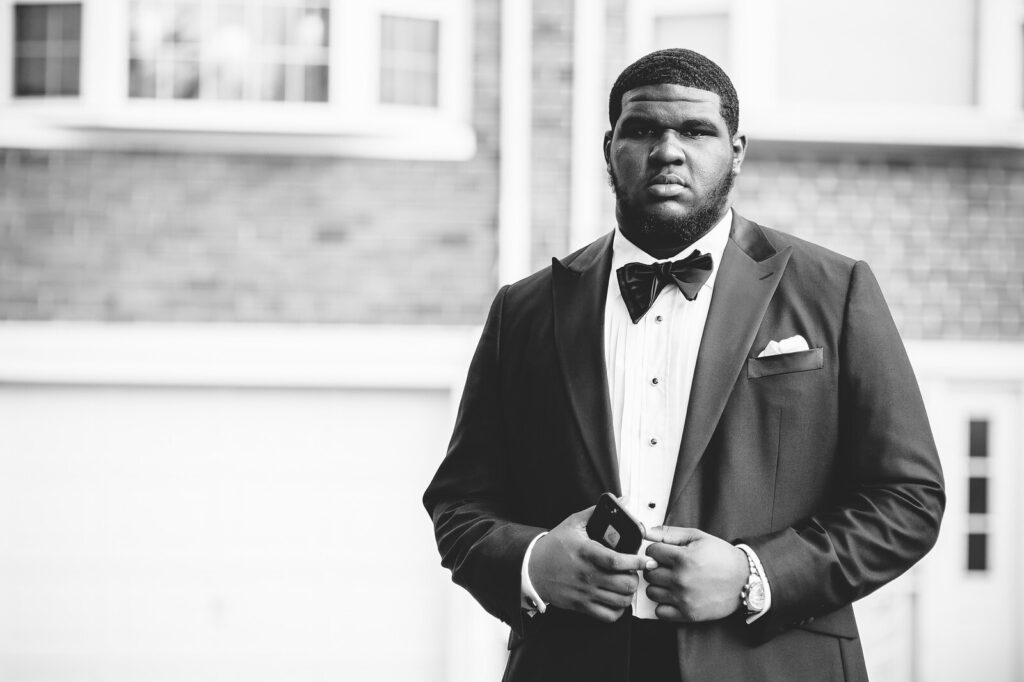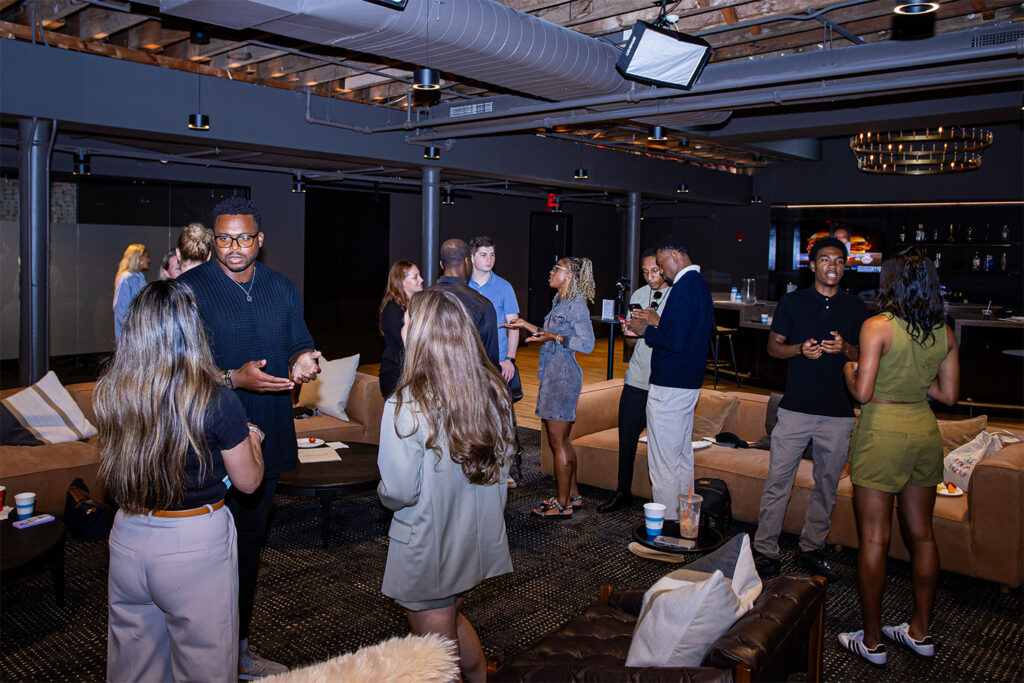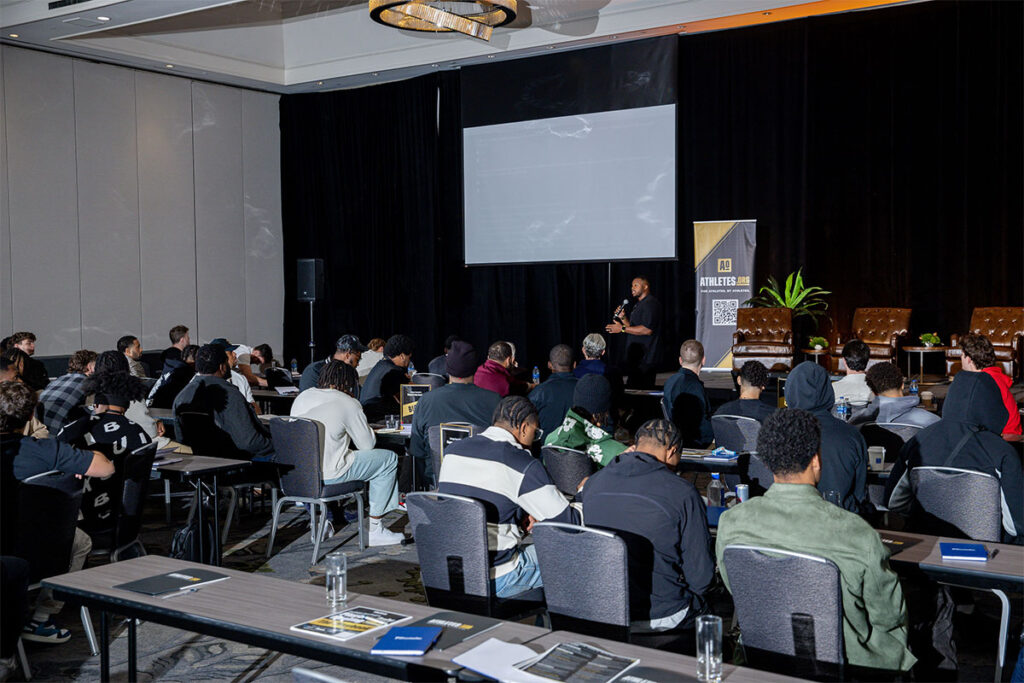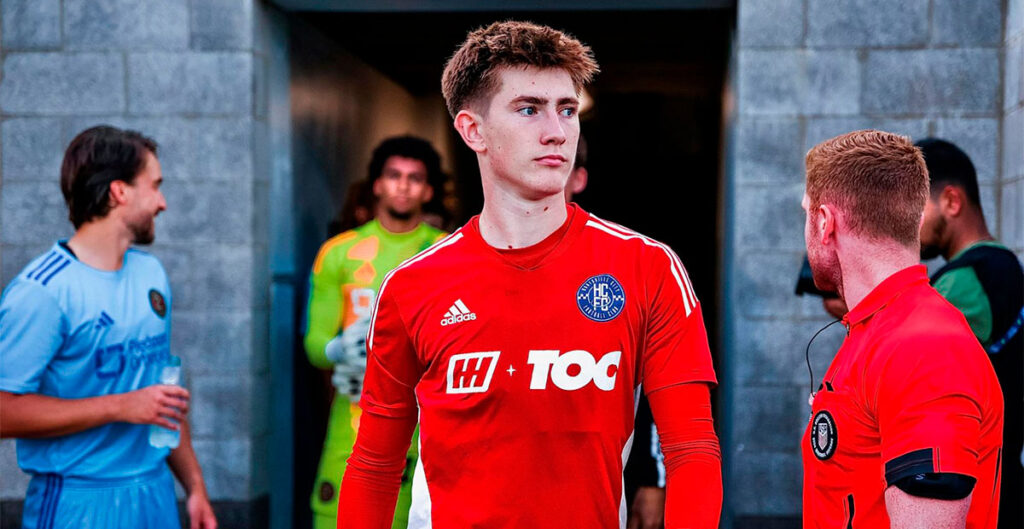
As a self-proclaimed nerd, my focus was always on academics. I wanted to be the best student I could be. I wanted to be a teacher’s pet. I wanted to get good grades.
As I got older and bigger, my focus started to shift. As a sophomore in high school, the head football coach asked me if I wanted to go to college for free. I said, “Of course, but how?” He said, “You’ve got to play football.”
I didn’t take him seriously at first, but I gave it some thought and talked to my grandma, who raised me, and she said I could play football if I kept my grades up. With her blessing, I started playing football. But I never could have imagined how much my life would change.
From the classroom to the field
Not to sound egotistical, but I had already garnished national attention and just wanted to shut my recruitment down since we finally had an early signing day class, I wanted to focus on the main thing, which was to me enjoying my senior year of high school and trying to finish as valedictorian (which I didn’t achieve, but was close!) I visited the University of Oregon and loved what they had to offer in terms of support, their alumni network, and the overall atmosphere. That’s how I ended up at Oregon, one of the premier programs in the country.
I had a great first year and was excited to contribute more on the field in my second year. But then, I started to experience some challenges. Performance anxiety, injuries, and an overall pressure to perform at a high level started to take a toll on me. The coaches and staff made it clear that Oregon was an elite program, and if you didn’t contribute, you had an expiration date.
Unfortunately, I faced multiple injuries and went through concussion protocols that I struggled to come back from. I was in and out of concussion protocol, and during that time, I had to isolate myself from my teammates and take medication to help with my symptoms. It was tough, and I started to feel forgotten about and isolated. In the end, the team doctor made the decision to medically retire me.
Luckily, I was able to find a new path.
Advocating for yourself
One of the biggest lessons I learned during my time at Oregon is the importance of advocating for yourself. As college athletes, we often feel like we don’t have a voice, but it’s crucial to speak up and share what we’re going through. Not everyone understands the mental health struggles or performance anxiety we face, so it’s essential to have those conversations and seek help from the resources available to us.
I also learned the power of self-advocacy when I went through a mental health episode and had to take a break from school. I felt forgotten and isolated, but I had to speak up and advocate for myself to get the help and support I needed to return to my academic pursuits.
Embracing my new path
After medically retiring from football, I embraced my new path as a student and got involved in student leadership and organizations on campus. I found a sense of purpose and fulfillment in helping other student-athletes build their brands and navigate the world of NIL (name, image, likeness). Through the Oregon Accelerator program, we worked with student-athletes to help them establish their brand presence on social media and educate them on influencer marketing. It was incredibly rewarding to see these athletes learn and grow and position themselves for success in their careers beyond sports.
The views expressed here are my own and reflect my personal journey, not necessarily those of any past or current institution or employer.
Continuing the journey
After my time at Oregon, I had the opportunity to work at different universities and continue my work in NIL and student-athlete development. I work for a company called Learfield, where I’m a NIL business manager for Beaver Sports Properties.
It’s been a fulfilling journey, and I’m grateful for the experiences and lessons I’ve learned along the way.
In sharing my story, I hope to inspire other college athletes to advocate for themselves, embrace their unique paths, and take advantage of the opportunities available. Whether it’s on the field, in the classroom, or beyond, we all have the power to make a difference and leave a lasting impact.
And remember, it’s okay to be a nerd too.


